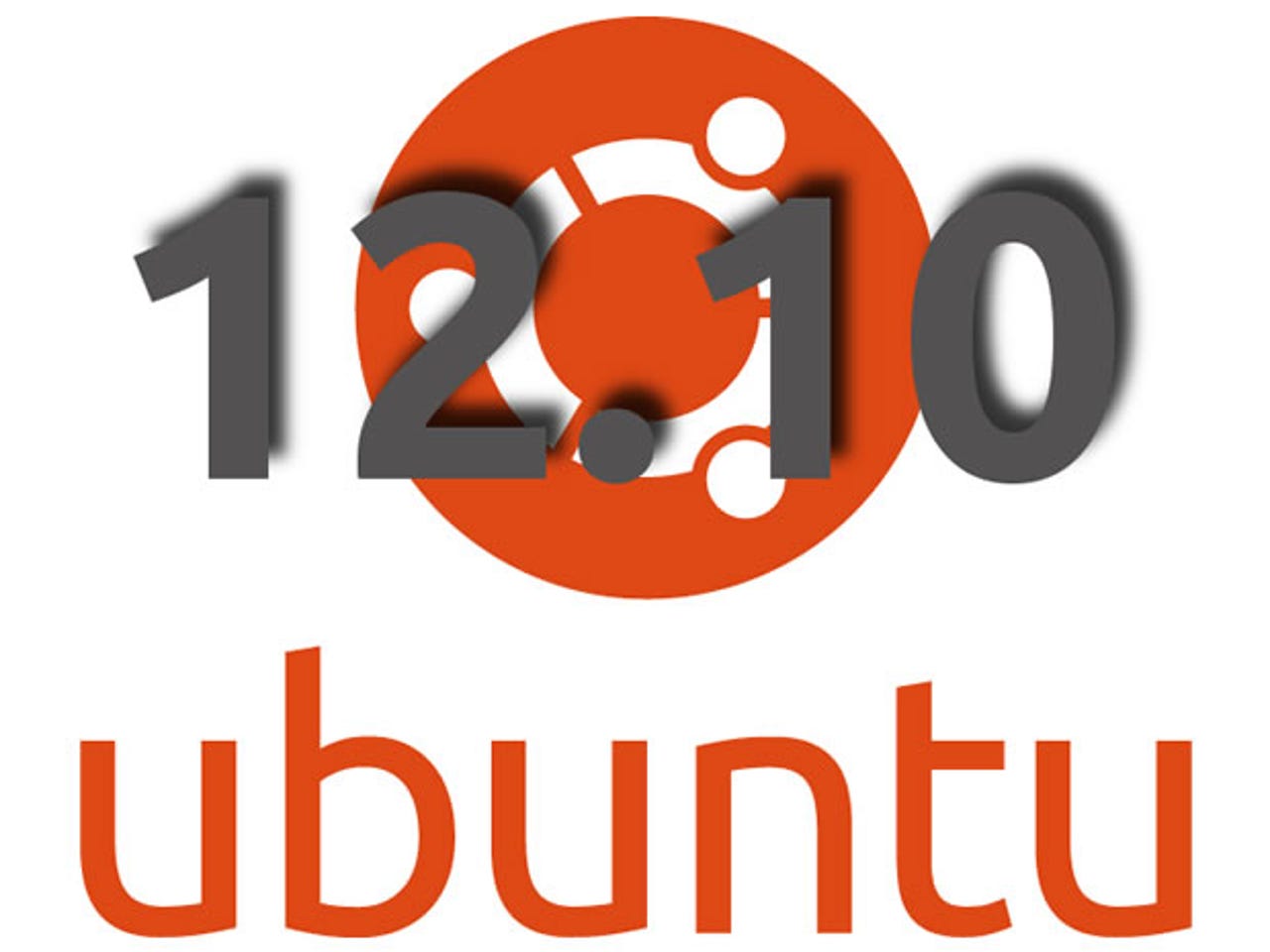Ubuntu 12.10 (Quantal Quetzal) review


Ubuntu 12.10 (Quantal Quetzal)
Here's a bullet list of the new features and changes for Ubuntu 12.10 (Quantal Quetzal):
- New GRUB 2 boot loader
- Graphics makeover for Ubuntu Greeter and the default theme
- Remote login/remote desktop access added to Greeter log-in prompt
- Nautilus file manager sticks at version 3.4
- Linux kernel incremented to version 3.5
- Unity revs to 6.8.0; Unity 2D is dropped; previews added
- Software Updater simplified
- Dash search returns online results from Ubuntu One and Amazon
- Dash preview
- New Dash Photo lens; new Gwibber icon
- New Share Links tab in Ubuntu One Control Panel
- New centralised management for online accounts
- New versions for some bundled applications
- Disk image is now 800MB, so install requires a USB memory or a DVD
- Menus are reorganised and many previous menu choices consolidated under Dash
- Python revs to version 3 (with version 2 still supported for now)
GRUB 2 boot loader
Microsoft's adoption of the UEFI secure boot feature makes it more difficult for Ubuntu and other operating systems to dual boot with Windows 8. For Ubuntu 12.10 Canonical has chosen to resolve this problem by using the Microsoft-generated keys with a signed version of GRUB 2.
Previously, choices to boot Ubuntu from earlier kernel versions were shown on the first and only GRUB page, and this tended to become an ever-lengthening list as kernel updates were added. Now these alternate boots are assigned to a secondary page accessed through the 'Advanced options for Ubuntu' GRUB menu choice.
The Ubuntu Greeter Login prompt
The Greeter login prompt now includes an option for Remote Login to an RDP (Remote Desktop Protocol) server. The Remote Login allows users who have set up an Ubuntu Remote Login Account to access any remote machine added to that account. Once added and following a remote login, the available machines appear as entries in the login prompt.
The Nautilus file manager
The latest version of the GNOME-developed Nautilus file manager, version 3.6, no longer provides the features felt to be essential to Ubuntu. So — as already reported in our Beta 1 preview — Ubuntu 12.10 sticks with Nautilus 3.4.
The 3.5 Linux kernel
The Linux kernel included with Ubuntu 12.10 is updated to a customised version based on the 3.5.3 upstream version which, as previously reported, features several changes that should result in improved graphics performance — including improved support for DisplayLink monitors and the hybrid graphics technologies found in notebooks. It also moves to X.org's X Server 1.13.
Unity 6.8.0
In Quantal Quetzal, Unity is now at version 6.8.0. This revision mainly takes care of a few bugs, but a new preview feature has been added to Dash where a right click on the icon of any asset appearing there opens a preview pane display of information related to that asset. Scroll arrows to the right and left of the preview pane allow scrolling to the next asset and a further right click closes the preview. Buttons appearing at the lower right of the preview offer a choice of further actions appropriate to the asset being previewed.
There are also changes to the lenses, with the new online shopping lens, a new lens for Photos and a new icon for Gwibber. Although it's designated a 'lens', the online shopping suggestions — unlike the other lenses — do not have an icon at the bottom of Dash.
Dash lens icons, including the new Gwibber icon (fourth from left) and the new Photo lens icon (sixth from left).
Launch icons for the Ubuntu One music store and the Amazon website have been added by default to the Launcher bar:
The 'Amazon' lens
As mentioned in our Ubuntu 12.10 Beta 2 preview, Canonical caused quite a stir when it widened the scope of the Dash predictive search to include online results in the Home lens — and results from the online shopping giant Amazon in particular.
Quite apart from the commercial aspect of this move, there's a problem with the broad scope of the search results. The same type of problem appeared in the Software Centre when Canonical added commercial applications (books and magazines, in particular): there's no filtering. For example, an English speaker living in the UK probably doesn't want the Software Centre listings for the German-language version of Linux User magazine, along with many other results for foreign-language publications. Because of the nature of predictive searching, filtering of Dash suggestions isn't likely to appear.
Issues over the transmission of the search terms being unencrypted, over the unintended display of 'adult' results and the omission of some text required by Amazon's API have apparently now all been resolved.
In response to criticism, Canonical has added a new toggle to turn off online search results in Dash via a new 'Search Results' tab under Privacy in System Settings — but this will turn off all online searches, including those for Gwibber.
The new Search Results tab in the Privacy settings dialogue allows online searching to be turned off.
Canonical has also added a 'Learn more' link at the bottom right of the Dash window that leads to a legal disclaimer. Once the link has been opened and closed the link indicator changes to a smaller information icon.
As an alternative to the Privacy settings switch, the shopping lens can be uninstalled using a command line from a terminal as follows:
sudo apt-get remove unity-lens-shopping
And reinstalled with:
sudo apt-get install unity-lens-shopping
The System menu and Software Updater
Comparing the System menus from Ubuntu 12.04 (Precise Pangolin) and 12.10 side by side reveals quite a few changes. The order of available choices, and even the choices available, have changed considerably: Displays, Startup Applications, Software Updater, Attached Devices/Printers and Lock Screen have all gone, and the top two spots have been taken by About This Computer and Ubuntu Help. All of the removed choices are now accessed via Dash or System Settings.
The Software Updater has been simplified, and when launched from Dash now immediately checks for updates. The status display is simpler and smaller and shows just a moving status bar. With checks complete, details of the available updates are displayed and users must confirm installation by clicking the Install Now button.
Messaging menu
The Messaging menus from Ubuntu 12.04 (left) and 12.10 (right).
Although earlier ideas for a status indicator on the Messaging envelope icon that appeared briefly in Beta 2 have now been dropped, a comparison of the 12.04 Messaging menu with the new 12.10 menu show quite a difference. The menu in 12.10 is greatly simplified.
New versions for the bundled applications
A new Linux distribution always offers an opportunity to update to more recent versions of the bundled applications. In Ubuntu 12.10, for example, LibreOffice is incremented to version 3.6.1.2 and although it's not installed by default, GIMP goes to version 2.8. The Firefox browser and the Thunderbird mail client are at version 16.0.1.
Conclusions
The development of Ubuntu 12.10 hasn't exactly been a smooth ride, with early problems over the choice of boot loader solutions to accommodate dual boot with Windows 8, and the strong reaction to widening the scope of Dash search to include online results.
Perhaps surprisingly for an October release, 12.10 has a number of high-profile new features. However, these are features that clearly demonstrate Canonical's commitment to making the user interface intent-based, by focusing everything through the Dash predictive search, and to integrating online services with the OS via cloud services, messaging services and the online search scope.
Ubuntu 13.04: Raring Ringtail
The next version of Ubuntu, 13.04, will be codenamed Raring Ringtail, named after the North American racoon. In his blog post announcing the nomenclature, Mark Shuttleworth said that:
"...it’s time to look at the core of Ubuntu and review it through a mobile lens: let’s measure our core platform by mobile metrics, things like battery life, number of running processes, memory footprint, and polish the rough edges that we find when we do that. The tighter we can get the core, the better we will do on laptops and the cloud, too."
As ever, ZDNet will be on hand to follow the Linux distribution from beta to shipping.